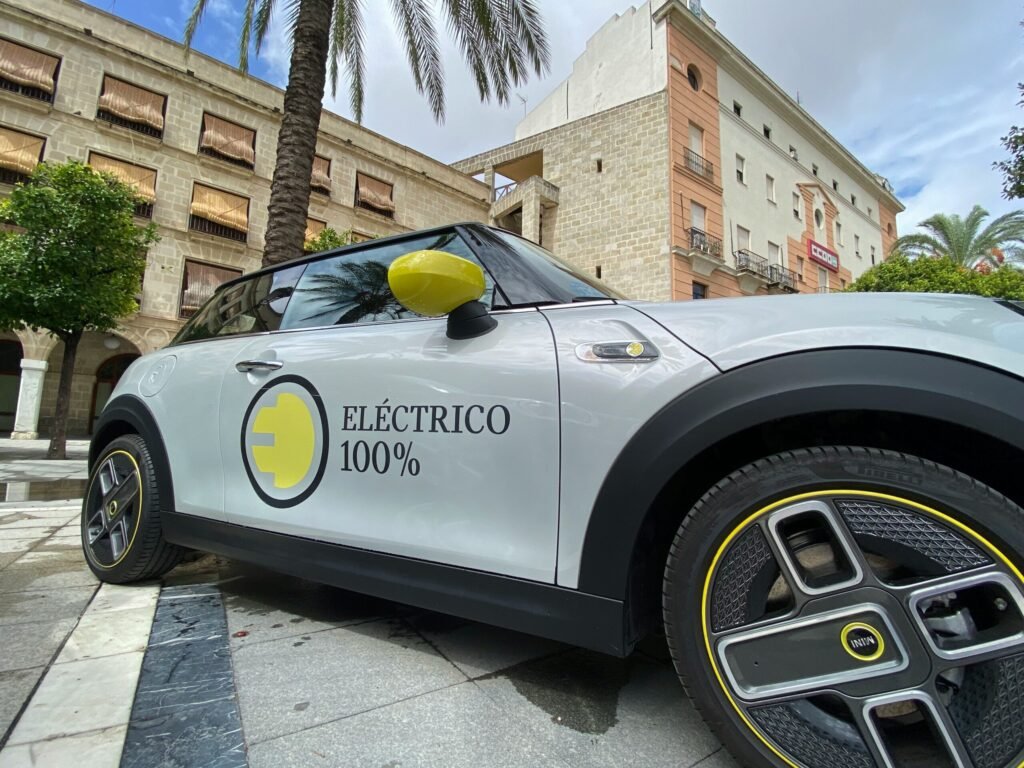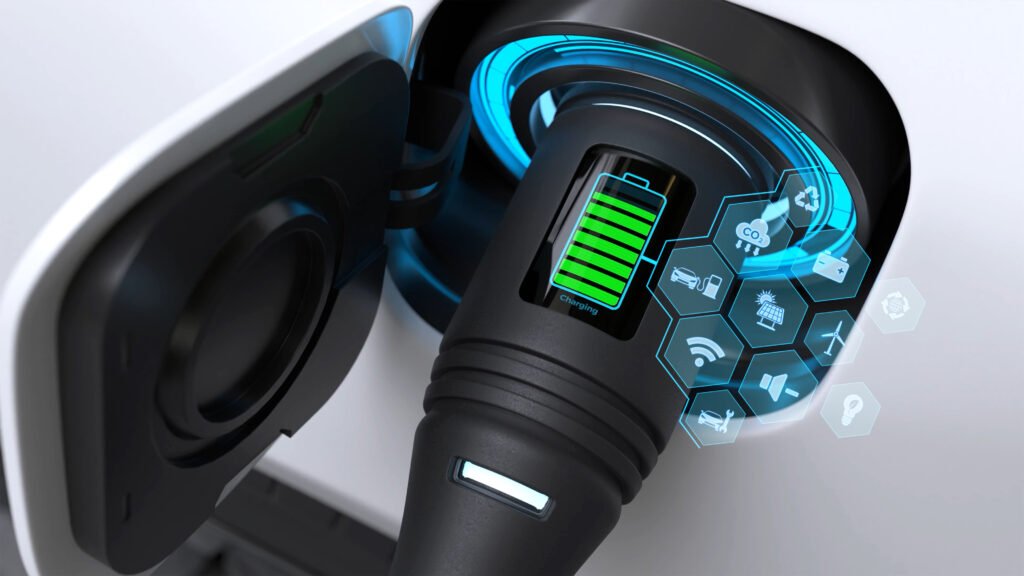As you drive your vehicle, the air conditioning system plays a crucial role in maintaining a comfortable temperature inside the cabin. At the heart of this system is the electric A/C compressor, a vital component that has become increasingly important in modern vehicles, especially with the rise of electric vehicles (EVs).
The electric vehicle a/c compressor is designed to provide efficient cooling while minimizing energy consumption. Understanding how it works and its significance in your vehicle’s overall performance is essential for optimal driving experience.

Key Takeaways
- Understanding the role of the electric A/C compressor in your vehicle’s cooling system.
- The importance of efficient cooling in modern vehicles, particularly EVs.
- How the electric vehicle a/c compressor contributes to overall vehicle performance.
- Factors to consider when maintaining or replacing your vehicle’s A/C compressor.
- The impact of electric A/C compressors on vehicle energy consumption.
What Makes Car Electric A/C Compressors Different
As automotive technology advances, the electric A/C compressor has emerged as a key component in modern vehicles, differing substantially from its mechanical predecessors.
The Evolution from Mechanical to Electric Compressors
The transition from mechanical to electric compressors in vehicles has been driven by the need for more efficient and reliable cooling systems. Mechanical compressors were directly driven by the engine, which often resulted in inefficiencies and reduced overall vehicle performance. In contrast, electric car air conditioning compressors operate independently of the engine, providing more consistent cooling and reducing the load on the engine.
Key Components of Modern Electric A/C Systems
Modern electric A/C systems comprise several key components, including the electric compressor, an inverter, and advanced control systems. The automotive electric compressor is the heart of the system, responsible for compressing the refrigerant. The inverter converts DC power from the vehicle’s battery to AC power for the compressor, while advanced control systems ensure optimal performance and efficiency.
How They Integrate with Your Vehicle’s Electronics
Electric A/C compressors integrate seamlessly with a vehicle’s electronics through advanced control systems. These systems monitor various parameters, such as temperature and pressure, to optimize compressor performance. The integration enhances overall vehicle efficiency and performance, making electric car air conditioning compressors a vital component in modern automotive design.
| Feature | Mechanical Compressors | Electric Compressors |
|---|---|---|
| Engine Dependency | Directly driven by the engine | Operates independently of the engine |
| Cooling Consistency | Variable cooling based on engine speed | Consistent cooling regardless of engine speed |
| Efficiency | Less efficient due to direct engine coupling | More efficient as it operates independently |
As highlighted by industry experts, “The shift towards electric compressors is a significant step forward in automotive technology, offering improved efficiency and performance.” This evolution underscores the importance of adapting to new technologies in the pursuit of better vehicle performance and reduced environmental impact.
How Your Car Electric A/C Compressor Functions
As you drive, your car’s electric A/C compressor works tirelessly to keep your cabin cool, but have you ever wondered how it actually works? The electric A/C compressor is a critical component of your vehicle’s air conditioning system, responsible for compressing refrigerant to cool the air.
The Basic Operating Principles
The electric A/C compressor operates on the principle of compressing refrigerant, which then expands to cool the surrounding air. This process is facilitated by an electric motor, which drives the compressor.
The compressor’s operation is controlled by sophisticated electronics that monitor various parameters such as temperature, pressure, and system demand.
- Efficient Cooling: Provides effective cooling even at low engine speeds.
- Precise Control: Allows for accurate temperature control through advanced electronics.
- Reduced Load on Engine: Decreases the load on the engine, potentially improving fuel efficiency.
The Refrigeration Cycle Explained
The refrigeration cycle is the backbone of your car’s air conditioning system. It involves the circulation of refrigerant through various components, including the compressor, condenser, expansion valve, and evaporator.
Key Steps in the Cycle:
- The refrigerant is compressed by the electric A/C compressor, raising its temperature and pressure.
- The hot, high-pressure refrigerant then flows to the condenser, where it releases heat and condenses into a liquid.
- The liquid refrigerant passes through the expansion valve, which reduces its pressure and allows it to expand.
- The cold, low-pressure refrigerant then enters the evaporator, where it absorbs heat from the cabin air and evaporates back into a gas.
Power Supply and Control Systems
The electric A/C compressor is powered by the vehicle’s electrical system, typically drawing power from the battery or an auxiliary power source in hybrid and electric vehicles.
The control system, often managed by the vehicle’s Engine Control Unit (ECU) or a dedicated A/C control module, regulates the compressor’s operation based on inputs from various sensors.
Key Components of the Control System:
- Sensors: Monitor temperature, pressure, and other vital parameters.
- Control Module: Processes sensor data to control compressor operation.
- Power Electronics: Manages the power supply to the compressor.
Benefits of Electric Compressors in Modern Vehicles
Electric compressors are revolutionizing the way vehicles operate, offering numerous benefits over traditional mechanical compressors. As you consider the advantages of electric compressors, you’ll find that they significantly enhance your vehicle’s performance, efficiency, and environmental footprint.
Improved Fuel Economy and Performance
One of the primary benefits of electric compressors is their ability to improve fuel economy. By optimizing the cooling system, electric compressors reduce the load on the engine, resulting in better fuel efficiency. Additionally, they provide quieter operation and reduced vibration, enhancing your overall driving experience.
Enhanced Cooling Capabilities
Electric compressors offer enhanced cooling capabilities compared to their mechanical counterparts. They can operate at varying speeds, allowing for more precise control over the cooling system. This results in faster cooling and improved cabin comfort, especially during extreme weather conditions.
Environmental Advantages and Reduced Emissions
The adoption of electric compressors contributes to a more eco-friendly automotive industry. By reducing the energy required for cooling, electric compressors help minimize the overall emissions of your vehicle. Furthermore, they are designed to work efficiently with eco-friendly refrigerants, further reducing their environmental impact.
In conclusion, electric compressors bring numerous benefits to modern vehicles, from improved fuel economy and performance to enhanced cooling capabilities and reduced environmental footprint.
Electric A/C Compressors in Electric and Hybrid Vehicles
As you explore the world of electric and hybrid vehicles, understanding the role of electric A/C compressors becomes crucial. These vehicles rely on advanced technologies to optimize performance, efficiency, and range. The electric A/C compressor is a key component in achieving these goals.
The design and operation of electric A/C compressors in electric and hybrid vehicles present unique challenges and opportunities. Let’s examine some of the key aspects.
Specialized Designs for EVs and Hybrids
Electric A/C compressors for electric and hybrid vehicles are designed with specific considerations in mind. These include:
- Efficient operation at varying speeds: Unlike traditional compressors, electric A/C compressors must operate efficiently across a wide range of speeds.
- Compact design: EVs and hybrids often have limited space, requiring compressors to be compact and lightweight.
- High-performance cooling: Effective cooling is critical in EVs and hybrids to maintain battery performance and overall vehicle efficiency.
Battery Management Considerations
The operation of electric A/C compressors has a direct impact on battery management in EVs and hybrids. Key considerations include:
- Power consumption: Compressors must be designed to minimize power consumption to preserve vehicle range.
- Battery health: The compressor’s operation should not adversely affect battery health or longevity.
Impact on Vehicle Range
The electric A/C compressor’s operation can significantly impact the range of EVs and hybrids. Factors to consider include:
- Efficient compressor design: Optimizing compressor efficiency is crucial to minimizing its impact on vehicle range.
- Smart control systems: Advanced control systems can help manage compressor operation to balance comfort and range.
By understanding these aspects, you can appreciate the importance of electric A/C compressors in electric and hybrid vehicles and their role in optimizing overall vehicle performance.
Troubleshooting Common Electric A/C Compressor Issues
Understanding the common problems associated with electric A/C compressors can help you diagnose and potentially fix issues before they escalate. Your car’s electric A/C compressor is a critical component of its air conditioning system, and troubleshooting it requires a systematic approach.
Warning Signs Your Compressor Is Failing
Identifying the early warning signs of compressor failure can save you from more extensive repairs down the line. Common indicators include reduced cooling performance, unusual noises emanating from the compressor, and increased energy consumption. If you notice any of these signs, it’s crucial to investigate further.
Diagnosing Electrical Problems
Electrical issues can often be traced back to the compressor or its associated circuitry. Diagnosing these problems involves a combination of understanding the system’s electrical architecture and using the right diagnostic tools.
Using OBD Codes for Diagnosis
Modern vehicles often provide On-Board Diagnostics (OBD) codes that can give insight into the nature of the problem. Checking these codes can help you pinpoint whether the issue lies with the compressor or elsewhere in the system.
Testing Voltage and Connections
A crucial step in diagnosing electrical issues is testing the voltage supply to the compressor and inspecting the connections for any signs of wear or damage. Ensuring that the compressor is receiving the correct voltage and that all connections are secure is vital for its operation.
Refrigerant System Issues
Problems with the refrigerant system can also impact the compressor’s performance. Leaks, blockages, or improper refrigerant levels can all cause the compressor to work inefficiently or fail altogether. Regular checks for refrigerant leaks and ensuring the system is properly charged are essential maintenance tasks.
Maintenance and Care for Your Electric A/C System
To keep your electric car’s A/C system running efficiently, regular maintenance is crucial. This not only ensures optimal cooling performance but also prolongs the lifespan of your electric car hvac compressor.
Preventative Maintenance Schedule
Establishing a preventative maintenance schedule is vital. Check your vehicle’s manual for recommended service intervals. Typically, this involves inspecting the A/C system every 12,000 to 18,000 miles. Regular checks can help identify potential issues before they become major problems, ensuring your eco-friendly a/c compressor continues to operate effectively.
DIY Inspection Tips
For DIY enthusiasts, inspecting the A/C system can be straightforward. Look for signs of wear or damage on the compressor, condenser, and evaporator. Check for leaks, and ensure all connections are secure. Listen for unusual noises from the compressor, which could indicate a problem.

Professional Service Recommendations
While DIY inspections are useful, professional servicing is recommended for complex tasks. Certified technicians have the tools and expertise to diagnose and repair issues accurately. They can also perform tasks like refrigerant recharge, which is crucial for maintaining the efficiency of your electric car hvac compressor. Regular professional checks can help prevent costly repairs down the line.
Conclusion
As you’ve learned, the car electric a/c compressor plays a vital role in your vehicle’s air conditioning system. Its evolution from mechanical to electric compressors has brought numerous benefits, including improved fuel economy, enhanced cooling capabilities, and reduced emissions.
For electric and hybrid vehicles, the electric vehicle air conditioning compressor is specially designed to optimize performance and range. Understanding how these systems work and how to maintain them is crucial for ensuring your vehicle’s overall efficiency and comfort.
By following the maintenance and troubleshooting tips outlined in this article, you can help extend the life of your electric A/C compressor and prevent common issues. Regular inspections and professional service when needed will keep your vehicle’s air conditioning system running smoothly.
Stay informed about your vehicle’s electric A/C compressor to enjoy a more comfortable driving experience while maximizing your vehicle’s performance and environmental benefits.
FAQ
What is an electric A/C compressor, and how does it differ from a traditional compressor?
An electric A/C compressor is a component of modern vehicle air conditioning systems that uses electric power to compress refrigerant, unlike traditional compressors that are mechanically driven by the engine. This design allows for more efficient operation and better integration with the vehicle’s electronics.
How does an electric A/C compressor improve fuel economy and performance in my vehicle?
Electric A/C compressors can improve fuel economy by reducing the load on the engine, as they are not directly driven by it. This can lead to better fuel efficiency, especially in city driving or when the air conditioning is used frequently. Additionally, electric compressors can provide faster and more efficient cooling, enhancing overall vehicle performance.
Are electric A/C compressors used in electric vehicles (EVs) and hybrid vehicles?
Yes, electric A/C compressors are particularly suited for electric vehicles (EVs) and hybrid vehicles. They are designed to operate efficiently with the electric powertrain, helping to minimize the impact on battery range while maintaining effective cooling.
What are the signs that my electric A/C compressor is failing?
Signs of a failing electric A/C compressor include reduced cooling performance, unusual noises from the A/C system, and potentially, error codes displayed on the vehicle’s dashboard. If you notice any of these symptoms, it’s advisable to have your A/C system inspected by a professional.
Can I perform maintenance on my electric A/C compressor, or should I seek professional help?
While some basic maintenance tasks, such as checking the system’s refrigerant level and inspecting for leaks, can be performed by vehicle owners, more complex issues related to the electric A/C compressor may require professional diagnosis and repair. It’s recommended to follow a preventative maintenance schedule and consult a professional for any complex issues.
How do electric A/C compressors contribute to reduced emissions in vehicles?
By improving the efficiency of the air conditioning system and reducing the load on the engine, electric A/C compressors can contribute to lower emissions. In electric and hybrid vehicles, they help in minimizing the energy drawn from the battery for cooling, thus potentially reducing the overall emissions associated with generating the electricity used to charge the vehicle.
What should I look for when inspecting my vehicle’s electric A/C system?
When inspecting your vehicle’s electric A/C system, look for signs of leaks, check the refrigerant level, and ensure that all electrical connections are secure. It’s also a good idea to listen for any unusual noises that could indicate a problem with the compressor or other components.







